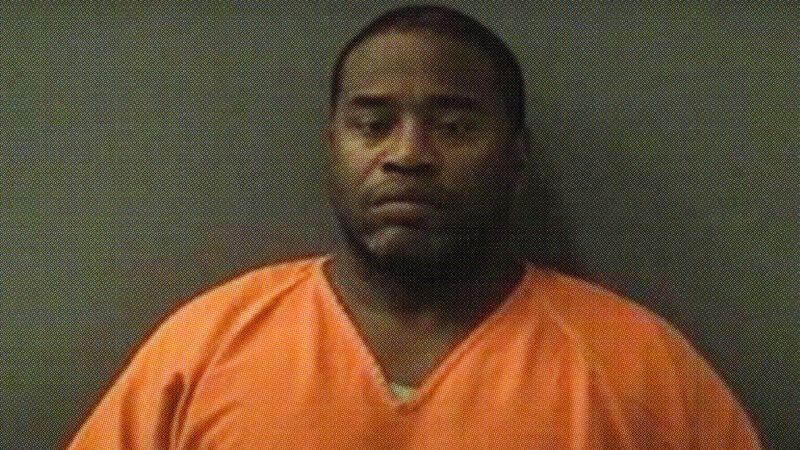Marvin Guy, Who Shot a Cop During a No-Knock Raid, Is Found Guilty of Murder
He is not the first defendant that has struggled to reconcile the controversial raids with self-defense.

A jury in Texas on Tuesday convicted a man of murdering a local police officer in a case that pitted no-knock raids against the right to self-defense.
Marvin Guy, who waited in jail for over nine years before his trial, was found guilty of murdering Detective Charles Dinwiddie, whom Guy said he mistook for an intruder after a SWAT team in 2014 smashed his bedroom window and tried to break into his home with a battering ram during a 5:45 a.m. drug raid. The panel declined, however, to convict him of capital murder and instead opted for murder, meaning they did not agree—at least not unanimously—that Guy knew he was shooting at law enforcement.
The raid was the product of a no-knock warrant, which police pursued in response to a tip that Guy had been dealing cocaine, and which allowed them to break into Guy's apartment without first identifying themselves.
On May 9, 2014, before the sun rose, about two dozen officers arrived at Guy's residence. The team struggled to fully penetrate the door with their battering ram; something was blocking it from behind. One officer accidentally detonated his stun grenade, inflaming what was already a raid rapidly going awry.
Guy, who lived in a high-crime area, said he was woken up and assumed the police were criminals trying to break into his home. He had allegedly been on edge about such a situation: One of his neighbors had reportedly been victimized similarly a week before when an intruder choked her after forcing entry by way of her first-floor window. Guy allegedly hit four officers, killing Dinwiddie and prompting police to fire over 40 rounds in return.
The prosecution, however, theorized that Guy had somehow come to know the police were coming and that he'd set a trap to "ambush" them. "One man's ambush is another man panicked, being scared his home is being broken into," countered Jon Evans, Guy's defense attorney.
Key to the defense's case were the frenzied circumstances characteristic of many no-knock raids—namely that it was set in motion without warning and before dawn, when the target is likely to be disoriented. A witness for the government testified the first day that during such raids it was department policy to shine a light into the home so police could see in but the subject couldn't see out.
The prosecution concluded their case on Thursday with testimony from Dinwiddie's widow, Holly, in what was effectively a victim impact statement. "He had a zest for life," she said. "He woke up happy." The defense rested the same day after calling one witness: retired Killeen Police Department Commander Scott Meads, who conducted an administrative review of the raid and identified several tactical errors and concerns, including that the officers were confused over the apartment's layout.
Texas has the Castle Doctrine, the legal principle that entitles someone to stand their ground in their home if they perceive a deadly threat. That protection evaporates, however, if the person is engaged in illegal activity. Law enforcement allegedly found traces of white powder on Guy's apartment floor, in his car, and in the trash, though the government did not charge him with a drug crime.
He is not the first defendant who has struggled to reconcile no-knock raids with the right to protect yourself. As I wrote earlier this month:
In 2020, Breonna Taylor was killed by police during a similar raid after her boyfriend, Kenneth Walker, grabbed a firearm he legally owned and fired one shot at police, believing them to be intruders. (Police claim they announced themselves before breaking down Walker's door; Walker says he didn't hear them.) Charges against him were ultimately dismissed.
But not everyone's case attracts the attention of the world. Guy—who was held on $4 million bond and whose trial was delayed multiple times due to his poor health; the COVID-19 pandemic; defense attorneys leaving or being terminated; and arguments with the District Attorney's office over obtaining evidence—will find out his fate next week at sentencing. Prosecutors originally wanted the death penalty, which they agreed to drop last year in order to expedite the almost decade-long pretrial process.


Show Comments (101)